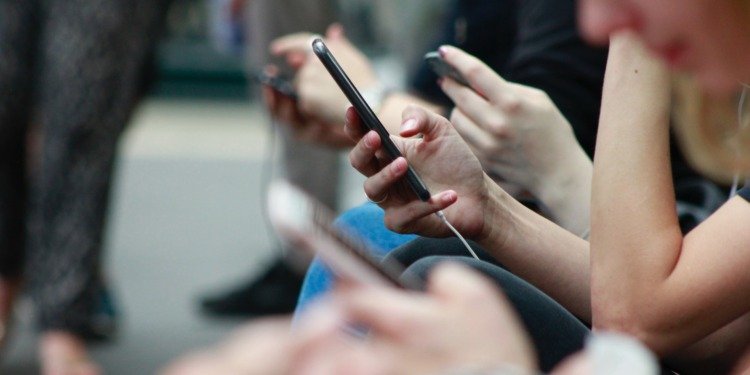Whilst the short-form social media app TikTok only started to become popular in early 2021, since then it has snowballed with it named the most used social network by the end of the year. The app continues to hold both millennials and Gen Z in its firm grasp and is now consistently ranked alongside Google and Facebook as the most visited domains.
However, coupled with this popularity are growing concerns of “TikTok addiction,” symptoms of which include irritability, anxiety or sadness when prevented from accessing the app.
What makes TikTok so addictive?
The short-form, high-volume content that constitutes the app’s USP results in frequent doses of dopamine and engages the user in a pattern of mindless scrolling.
As stated by sociologist Dr. Julie Albright, the app provides “random reinforcement” whereby the user is met with a variety of content designed specifically for their tastes by the algorithm, resulting in a persistent hunt for the videos that will provide the greatest hits of this “happy hormone.”
Albright parallels this cycle with that of gambling, particularly the use of slot machines. In this instance, however, the main commodity being wagered is our time.
What are the risks of overusing TikTok?
The prominence of intentionally addictive apps like TikTok in today’s society poses a great threat to our productivity. This is in part because of the hours that can easily be spent scrolling through the curated “for you page” in light of the app’s addictive qualities.
In addition, a study conducted by Microsoft revealed that in the years between 2010 (around the time that mobile phones started becoming popular) and 2015, the human attention span had reduced from 12 to 8 seconds, positioning us lower in the ranks than goldfish.
It is probable that this statistic has lowered further since the study given that in the past seven years we have experienced the social media boom and are now bombarded with more content than ever before.
In fact, it is becoming increasingly difficult for us to concentrate on less consistently stimulating activities like those of work or study, as our brains are not only less able to hold focus, but additionally experiencing withdrawal from the social media-induced dopamine rushes.
Related Article: TikTok Fails to Moderate Evolving Extremist Content | The 10 Best TikTok Accounts To Follow For Entrepreneurs And Startups
The information-action ratio theory also provides an interesting lens through which to analyse the risks of short-form, high-volume media. This concept was introduced by Neil Postman in his book “Amusing Ourselves to Death” and whilst its main concern is the introduction of the telegraph, the fundamentals remain relevant today.
In short, Postman writes that whilst in the past the vast majority of the information we received was functional – it concerned our individual circumstances and impacted our subsequent actions – we are now inundated with “context-free information”, the only purpose of which is to satisfy our interests and curiosities.
This daily influx of largely useless information, whilst perhaps engaging and entertaining, can result in a sense of “diminished social and political potency.” In other words, since we are unable to act on the majority of the information we are confronted with on TikTok and comparable social media sites, we are left feeling powerless and overwhelmed.
It is important to recognise that these statements do not apply to all of TikTok’s content.
In fact, the app can provide valuable information related to innumerable topics from sport and cooking to beauty and DIY.
TikTok has become a form of escapism providing often interesting information for many and was perhaps aided in its rapid growth in popularity (as demonstrated in the below graph) by our shared need for light-hearted, easily digestible media in the face of Covid-19.
How can TikTok be used in a healthy way?
Although many of us would like to believe that “TikTok addiction” can be avoided through sheer self-control, the reality is that in the face of all-powerful algorithms that guarantee an endless supply of dopamine-inducing content, we are left pretty powerless.
Fortunately, there is no need to rely solely on willpower, there are tools available that enable us to use TikTok in a healthy manner, and TikTok itself provides them.
Firstly, you can set a daily screen time limit on the app which notifies you when you reach that time. You can schedule screen time breaks as well which remind you to take some time away from the app after the set quantity of uninterrupted scrolling.
To aid in focus and productivity there are also apps designed to help you stay away from your phone entirely.
This is a sensible strategy considering, according to a University of California Irvine study, work that is interrupted by irrelevant tasks like responding to a text message is felt to be more stressful and frustrating, and requires more effort to complete.
Some examples of these apps include:
- Forest, which encourages you to avoid using your phone by growing virtual trees in your absence and subsequently rewards you with coins that can be used to plant real trees through Forest’s partner, Trees for the Future.
- Offtime, which blocks distracting apps like TikTok – or for that matter, YouTube and other social media – and filters messages to prevent you being thrown off task.
- Flipd, which allows you to lock your phone for a set time period and join live study rooms for added motivation.
Whilst TikTok was built to addict, a consciousness of the risks of mindlessly scrolling too frequently as well as the implementation of measures like those above can help us to enjoy TikTok as a harmless source of entertainment and a fount of (occasionally) useful information.
Editor’s Note: The opinions expressed here by the authors are their own, not those of Impakter.com — In the Featured Photo: Line of people on their phones. Featured Photo Credit: Robin Worrall.










